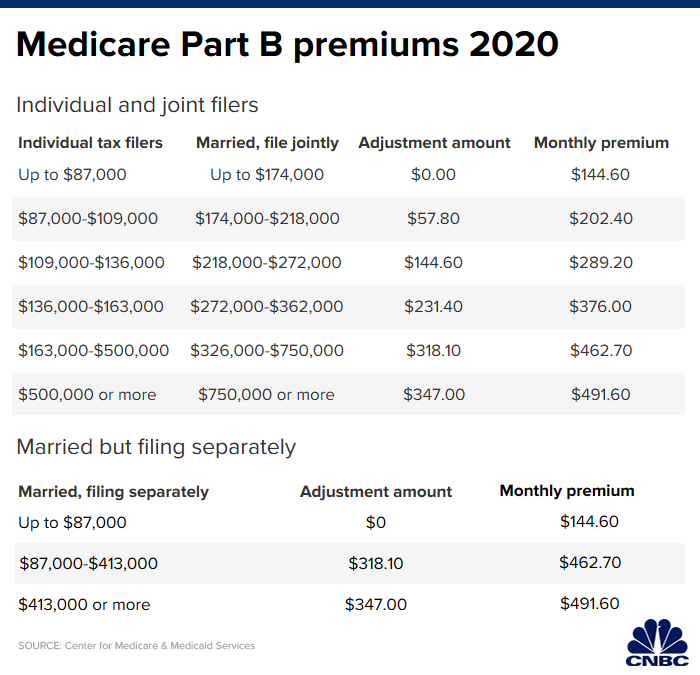
For most people, signing up for Medicare is a retirement rite of passage.
But as they turn 65 and sort through their Medicare Part A, B, C and D choices, many individuals can also be vulnerable to costly mistakes.
Even done the right way, it’s a high-stakes choice. Medicare beneficiaries will need as much as $400,000 for health expenses per couple, according to 2018 research from the Employee Benefit Research Institute. That is up from $370,000 in 2017.
“People do feel overwhelmed and baffled by Medicare,” said Katy Votava, president of Goodcare.com. “But there are some basic things that an advisor can do.”
Watch enrollment deadlines
The initial enrollment period runs from three months before someone’s 65th birthday to three months after.
If your client misses that date and does not have creditable coverage, they will face a 10% surcharge on their premium for every 12 months that they wait, said Katherine Roy, chief retirement strategist at J.P. Morgan Asset Management.
“It could get quite costly if someone has their mind set: ‘Hey, I’m in great shape. I’m not going to insure myself through Medicare, and I’ll just sign up when I need it,’” Roy said. “That is a very costly, bad decision to make.”
What’s more, it’s important to note that once they are on Medicare, they can no longer contribute to a health savings account. If they do, they will face a 10% penalty, Roy said.

When it’s OK to delay
Many clients who do have other health coverage face the same Medicare question: “Do I have to go in at 65 or don’t I?” according to Votava.
If a client is employed and their employer health plan meets the right criteria, they can delay signing up for Medicare. That is provided they have not started receiving Social Security retirement benefits, which would trigger automatic enrollment at 65 in Medicare Parts A and B, which cover hospital and medical insurance.
In order for your client to be eligible to delay, their employer must have 20 or more employees. The employer plan also cannot be a retiree or COBRA plan, according to Votava.
COBRA is a health insurance program that allows employees to continue their health insurance coverage if they lose or leave their job.
It is not considered a substitute for Medicare coverage because it is only considered secondary coverage for those who are Medicare-eligible. Because of that, COBRA will only cover 20% of the bill in many cases, Votava said.
The plan you select also must meet Medicare prescription drug coverage requirements, she said.
“If you have that coverage … you can delay until a special enrollment period in the future,” Votava said. “If none of those criteria are true, then you need to get into Medicare.”
Have resources ready
One thing you’ll want to have still-employed 60-something clients consider: Sometimes Medicare coverage is the better choice over an employer plan, Votava said.
For clients who are sorting through the complexities of enrollment decisions, it helps to have a go-to expert.
Another option for financial advisors: partnering with third-party experts to whom they can refer clients.
H.M. Payson & Co., No. 43 on CNBC’s FA 100 list, began working with a local expert about four years ago for that reason, according to Molly Reinfried, portfolio manager and chair of the firm’s financial planning group.
The advisory team at the Portland, Maine-based firm will help the clients to identify what questions they need answered — such as what happens to their health savings accounts once they are on Medicare and how to plan for their health care when they plan to split their time between two states.
Then, the team will pass that planning on to Coveside Healthcare Coverage Options, which helps clients assess what Medicare plans best fit their care needs.
The firm’s team, who are not insurance brokers, felt more comfortable having outside experts sort through those complex questions, Reinfried said.
Adam Peltzman, president of Health & Benefits Partners in East Norriton, Pennsylvania, serves as the Medicare expert for Sage Financial Group, a financial advisory firm that landed at No. 50 on this year’s FA 100 list.
Peltzman’s firm has worked with Sage, based in West Conshohocken, Pennsylvania, for about six years, and also receives referrals from other advisors as well.
The most common question Peltzman fields is whether a 65-year-old client should stay on their group retiree plan or switch to Medicare.
“Most people think it’s very expensive, and it’s not really expensive,” Peltzman said of Medicare. “It happens to be very good coverage, as well.”
Advisory firms who want to add a Medicare expert can start by getting suggestions for unbiased insurance providers from clients who have already gone through the process, Votava said.
It also helps to have a list of resources ready for clients. Some good starting points include Eldercare.gov, Medicare.gov, your State Health Insurance Assistance Program, or SHIP, and the Medicare Rights Center.

